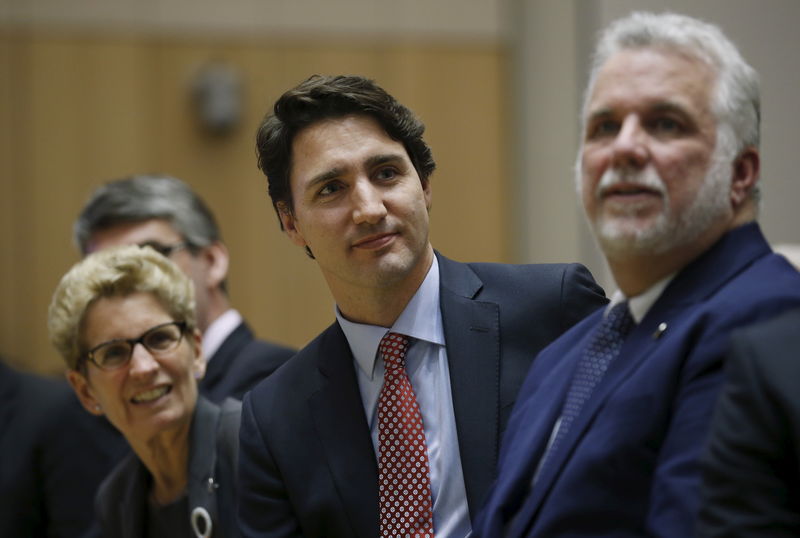By David Ljunggren
OTTAWA (Reuters) - Canada will tell a green summit next week that it is finally ready to tackle climate change, Prime Minister Justin Trudeau said on Monday after a meeting with the country's provinces to work out a national strategy.
Trudeau's Liberals won an election last month promising radical change on the environment from the previous Conservative administration, which was widely criticized for not doing enough to combat global warming during its near decade in power.
Trudeau, who will attend a United Nations environmental summit in Paris next week, says Canada must curb its emissions of greenhouse gases.
"In Paris a united Canada will demonstrate that we are serious about climate change," Trudeau told a late-night news conference after meeting with premiers of the 10 provinces and three territories.
Alberta, home to most of Canada's oil sands, said on Sunday in a ground-breaking move that it would implement an economy-wide tax on carbon emissions in 2017.
Trudeau and the provinces hope their united approach and Alberta's move will help dispel some of the international suspicion about Canada and climate change.
At previous U.N. summits the Conservative government sometimes found itself openly at odds with activist groups and even some provinces. Those days were over, said Trudeau.
"We need to show a renewed image of Canada to the world," said Quebec premier Philippe Couillard.
Some premiers are nervous about the idea. Brad Wall of Saskatchewan says Canada must find a balance between the environment and protecting employment.
Low crude prices have triggered major job losses among energy industry workers.
"As we prepare for Paris and to present a constructive and national front to the world, we just need to be mindful of that fact," he told the closing news conference.
Although the Conservatives had pledged to cut greenhouse gas emissions to 30 percent below 2005 levels by 2030, government figures show rising emissions mean the goal is out of reach.
Trudeau will not be going to Paris with a new target, but has committed to coming up with a goal with the provinces within 90 days of returning from the talks.
Two government scientists told the strategy meeting that Canada's rate of warming was about twice the global rate.

This means hotter summers with more forest fires, melting permafrost and a smaller Arctic ice cover that will force polar bears onto land as they search for food, they said.